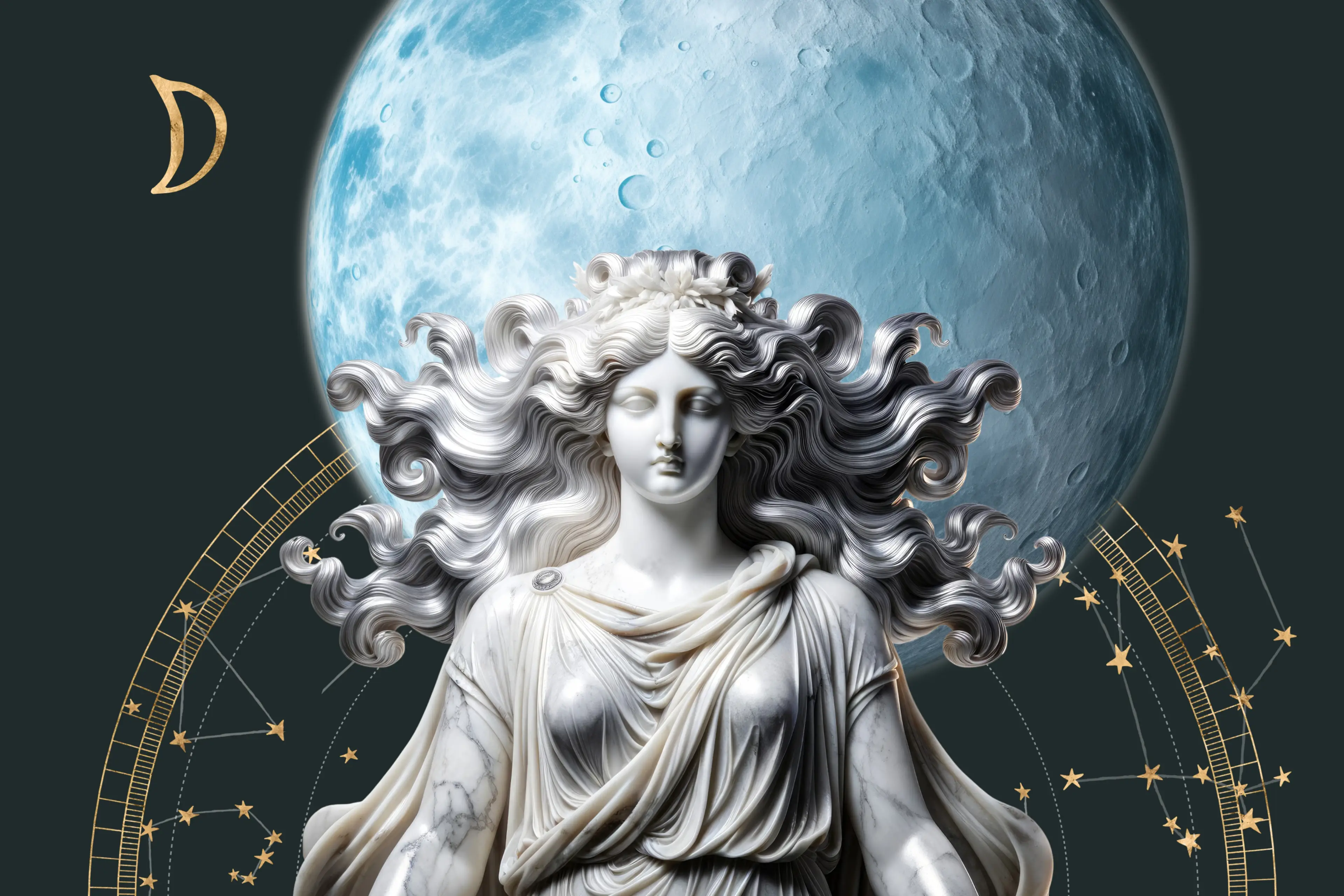The Moon represents the inner world of feelings, emotions, and moods, what brings a sense of emotional fulfillment, the ways that we seek to nurture and be nurtured, and our desire for comfort and protection.
In an astrology horoscope or birth chart, the Moon sign and house placement can describe what brings a sense of emotional fulfillment, the ways that we seek sustenance on a soul level, the kinds of activities that we may be drawn to as we enact our larger purpose, as well as our attachment style in relationships.
Key Concepts
The Moon rules the zodiac sign Cancer, and like the crab, the sign of Cancer is concerned with making a home in the world, an essential motivation of the Moon.
The Moon is exalted in Taurus, as the Moon’s ability to feel, sense, and relate comes alive in the Taurean garden of earthly and sensual delights.
The Moon has its joy in the 3rd House of Environment because the intuitive quality of the Moon is well balanced in the house of logic, intellect, and communication.
The Moon is related to the Major Arcana tarot card The Moon, which is symbolic of going within for intuitive insights and answers.
Astronomical Features
The Moon spends 2.5 days in each sign of the zodiac.
The Moon phase cycles through the entire zodiac every 28-29 days or once a month.
The Moon never retrogrades.
Moon Symbolism and Meaning
The Moon is the closest celestial body to Earth and, as such, rules over our bodily experience as physically incarnate beings. Its constant shifts in size relate to the changeable nature of our moods and feelings, and its movements have a strong correlation to the biological rhythms of all life on Earth.
As the receptacle of our subconscious awareness, the Moon represents the instinctual part of us that feels, senses, and intuits. It symbolizes our capacity to be reflective, receptive, relational, and responsive. Its wisdom is that which is felt within the body or through intuition rather than through conscious awareness or the intellect.
The Moon can reveal details about our childhood and upbringing, our relationship with our mother, or the ways we were nurtured as children and, subsequently, the ways we seek to get our emotional needs met as adults. It also represents the ways that we seek to build a home and the feeling of being embedded within a family or community.
The Moon in Balance
The Moon in balance can be seen as a strong connection to one’s intuition and inner world and an ability to digest, express, and release one’s emotions as they happen. It can manifest as the impulse to care for others, nurture relationships and compatibility, and cultivate a sense of rootedness in the world.
The Moon out of Balance
The Moon out of balance can manifest as an imbalanced relationship to one’s emotions: either as a tendency to be consumed by them or as a disconnection from one’s inner world. An imbalanced Moon can compel one to hold onto feelings, idealize the past, cling to memories or objects, or develop codependent relationships.
Psychological Aspects of the Moon
The psychological function of the Moon can be seen as the subconscious layer of awareness, which is a necessary foil and balance to the conscious awareness symbolized by the Sun. The full Moon doesn’t generate its own light but rather reflects the light of the Sun: it acts as a spotlight on the shadows that appear when our conscious awareness is dimmed.
Moon in Mythology
Both the Sun and Moon have been worshiped and personified throughout nearly every ancient culture. The Moon takes form as many different lunar goddesses related to fertility, birth, and the archetypal Great Mother. It can be likened to the anima or the feminine principle related to nurturing and receiving.

